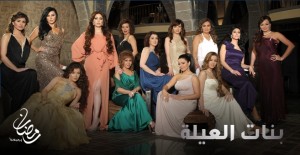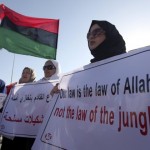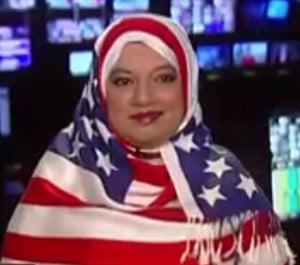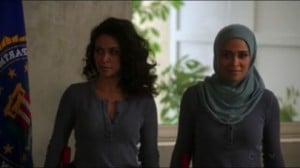For many of us, television drama can be an enriching part of our living experience, defining many of our day-to-day conversations with family members, co-workers and social network friends. But what happens if drama series go too far in fantasizing about our life situations by presenting us with unreal representations of events, issues and personalities that we find hard to identify with?
During this past Ramadan, I found two different soap operas tackling stories of Arab women from different perspectives quite misleading. One of them, Banat El ‘Aileh (The Family Girls), a Syrian production, tells the story of seven cousins, and the challenges facing young women at work, at home, and in relationship contexts.
The Family Girls introduces success stories of women who excelled at workplaces and at home alike, turning them into role models for other women in society. For example, Sara, the main character, is a successful radio anchor. She is engaged to a successful businessman, but fails to experience true romance in her life. One of her avid radio show listeners falls in love with her, chasing her wherever she goes. Because it has to end in a happy way, Sara leaves her fiancé for this lover, who believes in her career and success.
The other six cousins have similar stories, but this is not the real issue here. For me personally, watching bloody scenes of civilian killings on television makes it rather agonizing for me to switch the channel to The Family Girls. It is as if I wanted to be cheated into believing the situation in Syria is fine and the drama series was proof of that. One the one hand, it feels good to see women finally becoming walking up the ladder of achievement in society, but it saddens me to see those drama-generated dreams dashed against the bloody conflict in which women and children are the prime victims.

Women in Syria are being killed, tortured, and imprisoned, while on screen, they are represented as achievers in a society where such violence is absent. I am deeply pained by this gap in what we see on TV as drama work and as real news coverage. It is intriguing to learn that that the director of The Family Girls, Rasha Sharbatji, is known for her bold opposition to the brutal practices of the Syrian government against its own people. She has been one of the few people who rose up and called for the regime to allow milk and other products to enter the southern city of Dara’a at the beginning of the crisis. Putting together a production that is far away from the current reality is not something the director should be doing.
The other production, Ma’ Sabq Al Israr (With Deliberate Determination), is from Egypt,. The main character is Farida, played by Ghada Abdul Razeq, is a lawyer, and a victim of some acts of corruption, including those perpetrated by her husband. Farida is a successful lady, but she seems to be falling into different traps: her son gets addicted to cocaine, her daughter gets in a sexual relationship with a man, and her husband, whom she hates, dies, leaving a number of secrets and questions behind him.
Again, I feel great seeing how Egyptians are portraying women as strong personalities, using visually-creative production methods; but it also saddens me at the same time to see an Egyptian production that is detached from reality. Everyone in this soap opera seems to be rich, living in palaces, wearing the best designer clothes, and enjoying great food. Producers of this drama have apparently overlooked the fact that Egyptians, for almost two years, have been caught up in a struggle for democratic change that proved to be costly for many of them. One question that I feel provocative is: Where is the revolutionary Egyptian women in this drama series that paints a rosy picture of a world that doesn’t exist?
Such productions should ring alarming bells for Arab drama writers keen on reflecting the true realities of Arab women. It is true that drama works shown during Ramadan 2012 were produced perhaps at the early phases of the transitions in the region and could not accommodate accelerating developments. But one important fact remains salient: the region is indeed going through its most dramatic changes, and television needs to be an arena where those changes are represented.












